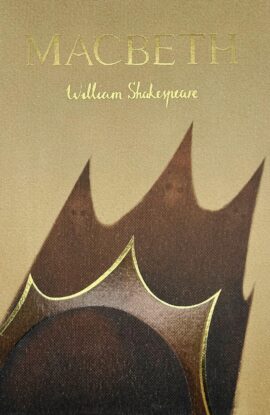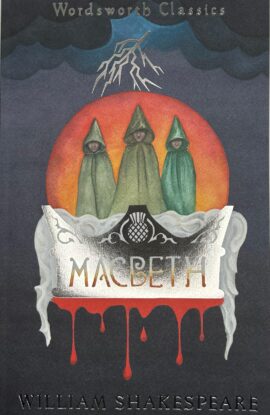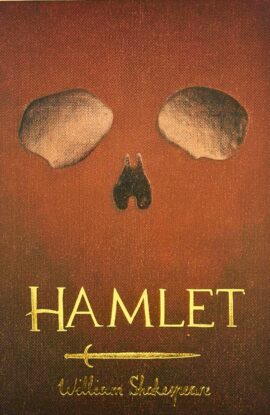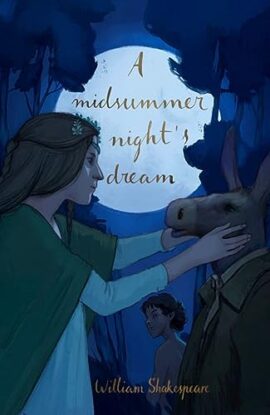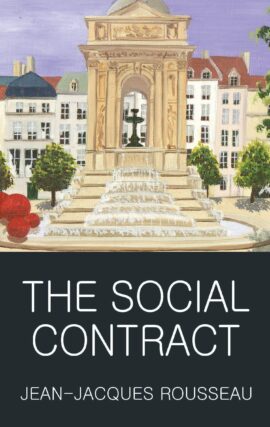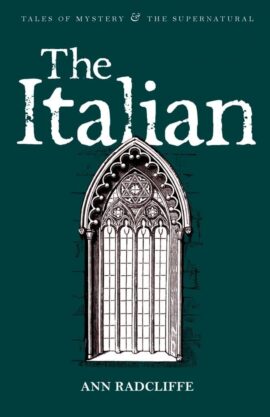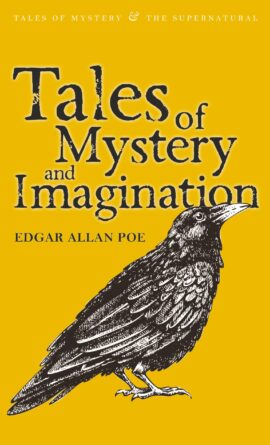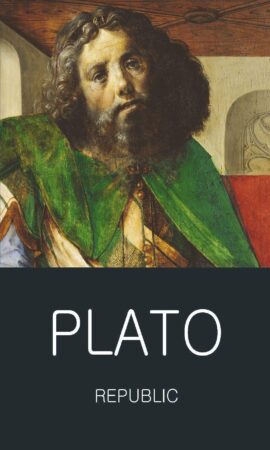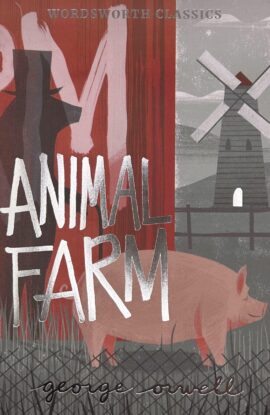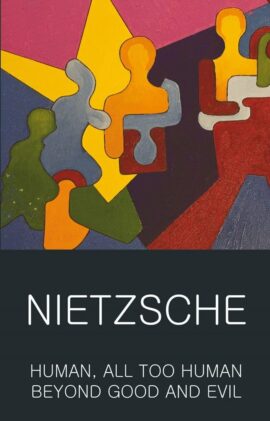Affichage de 277–288 sur 1221 résultatsTrié par popularité
Macbeth (Wordsworth Collector’s Editions)
Shakespeare's Macbeth is one of the greatest tragic dramas the world has known. Macbeth himself, a brave warrior, is fatally impelled by supernatural forces, by his proud wife, and by his own burgeoning ambition. As he embarks on his murderous course to gain and retain the crown of Scotland, we see the appalling emotional and psychological effects on both Lady Macbeth and himself.The cruel ironies of their destiny are conveyed in poetry of unsurpassed power. In the theatre, this tragedy remains perennially engrossing.
Macbeth (Wordsworth Classics)
Macbeth by William Shakespeare with an Introduction and Notes by Cedric Watts, Professor of English Literature, University of Sussex Macbeth is one of Shakespeare's four great tragedies, encompassing witchcraft, bloody murder, ghostly apparitions as well as high poetry, blended in such a way as to demonstrate the assured dramatic touch of Shakespeare's maturity. Macbeth's tragedy is that of a good, brave and honourable man turned into the personification of evil by the workings of unreasonable ambition. It was a lesson lost on King James I & VI, for whom the play was written.
Hamlet (Wordsworth Collector’s Editions)
Hamlet is not only one of Shakespeare's greatest plays, but also the most fascinatingly problematical tragedy in world literature. First performed around 1600, this a gripping and exuberant drama of revenge, rich in contrasts and conflicts. Its violence alternates with introspection, its melancholy with humor, and its subtlety with spectacle.The Prince, Hamlet himself, is depicted as a complex, divided, introspective character. His reflections on death, morality and the very status of human beings make him 'the first modern man'. Countless stage productions and numerous adaptations for the cinema and television have demonstrated the continuing cultural relevance of this vivid, enigmatic, profound and engrossing drama.
Hamlet
Hamlet by William Shakespeare edited, Introduced and Annotated by Cedric Watts, Professor of English Literature, University of Sussex. Hamlet is not only one of Shakespeare's greatest plays, but also the most fascinatingly problematical tragedy in world literature. First performed around 1600, this a gripping and exuberant drama of revenge, rich in contrasts and conflicts. Its violence alternates with introspection, its melancholy with humour, and its subtlety with spectacle. The Prince, Hamlet himself, is depicted as a complex, divided, introspective character. His reflections on death, morality and the very status of human beings make him 'the first modern man'.
A Midsummer Night’s Dream (Collector’s Edition) (Wordsworth Collector’s Editions)
A Midsummer Night's Dream by William ShakespeareIts lyricism, comedy (both broad and subtle) and magical transformations have long made A Midsummer Night's Dream one of the most popular of Shakespeare's works. The supernatural and the mundane, the illusory and the substantial, are all shimmeringly blended. Love is treated as tragic, poignant, absurd and farcical. 'Lord, what fools these mortals be!', jeers Robin Goodfellow: but the joke may be on him and on his master Oberon when Bottom the weaver, his head transformed into that of an ass, is embraced by the voluptuously amorous Titania.Recent stage-productions of A Midsummer Night's Dream have emphasised the enchanting, spectacular, ambiguous and erotically joyous aspects of this magical drama which culminates in a multiple celebration of marriage.
The Social Contract (Classics of World Literature)
With an Introduction by Derek Matravers.In The Social Contract Rousseau (1712-1778) argues for the preservation of individual freedom in political society. An individual can only be free under the law, he says, by voluntarily embracing that law as his own. Hence, being free in society requires each of us to subjugate our desires to the interests of all, the general will.Some have seen in this the promise of a free and equal relationship between society and the individual, while others have seen it as nothing less than a blueprint for totalitarianism. The Social Contract is not only one of the great defences of civil society, it is also unflinching in its study of the darker side of political systems.
The Italian (Tales of Mystery & the Supernatural)
The Italian by Ann Radcliffe defined the terror genre of writing and helped to establish the Gothic novel, thrilling readers with her mysterious plots and eerie effects. In The Italian she rejects the rational certainties of the Enlightenment for a more ambiguous and unsettling account of what it is to be an individual - particularly a woman - in a culture haunted by history and dominated by institutional power.
Tales of Mystery & Imagination (Tales of Mystery & the Supernatural)
Tales of Mystery & Imagination by Edgar Allan Poe. With an Introduction by John S. Whitley, University of Sussex This collection of Poe s best stories contains all the terrifying and bewildering tales that characterize his work. As well as the Gothic horror of such famous stories as The Pit and the Pendulum, The Fall of the House of Usher, The Premature Burial and The Tell-Tale Heart, all of Poe s Auguste Dupin stories are included. These are the first modern detective stories and include The Murders in the Rue Morgue, The Mystery of Marie Roget and The Purloined Letter.
Symposium and The Death of Socrates (Classics of World Literature)
With an Introduction by Jane O'Grady. Translated by Tom Griffith.In Symposium, a group of Athenian aristocrats attend a party and talk about love, until the drunken Alcibiades bursts in and decides to discuss Socrates instead. Symposium gives an unsurpassed picture of the sparkling society that was Athens at the height of her empire.The setting of the other dialogues is more sombre. Socrates is put on trial for impiety, and sentenced to death. Euthyphro discusses the nature of piety, Apology is Socrates' speech in his own defence, Crito explains his refusal to escape punishment, and Phaedo gives an account of Socrates' last day.These dialogues have never been offered in one volume before. Tom Griffith's Symposium has been described as 'possibly the finest translation of any Platonic dialogue'. All the other translations are new.
the_republic
Translated by John Llewelyn Davies and David James Vaughan. With an Introduction by Stephen Watt.The ideas of Plato (c429-347BC) have influenced Western philosophers for over two thousand years. Such is his importance that the twentieth-century philosopher A.N. Whitehead described all subsequent developments within the subject as foot-notes to Plato's work. Beyond philosophy, he has exerted a major influence on the development of Western literature, politics and theology.The Republic deals with the great range of Plato's thought, but is particularly concerned with what makes a well-balanced society and individual. It combines argument and myth to advocate a life organized by reason rather than dominated by desires and appetites. Regarded by some as the foundation document of totalitarianism, by others as a call to develop the full potential of humanity, the Republic remains a challenging and intensely exciting work.
Animal Farm (Wordsworth Classics)
In 1943, there was an urgent need for Animal Farm. The Soviet Union had become Britain’s ally in the war against Germany, and criticism of Stalin’s brutal regime was either censored or discouraged. In any case, many intellectuals on the left still celebrated the Soviet Union, claiming that the terrors of its show trials, summary executions and secret police were either exaggerated or necessary. But, to Orwell, Stalin was always a “disgusting murderer” and he wanted to remind people of this fact in a powerful and memorable way. But how to do it? A political essay would never reach a wide enough audience: a traditional novel would take too long to write. Orwell hit on the inspired idea of combining the moralism of the traditional ‘beast fable’ with the satire of Gulliver’s Travels. A group of farmyard animals, led by the pigs, overthrow their human masters. Their revolution is inspired by high ideals: the farm will be run in the interests of its animals with no more slaughtering, plenty of food for all and comfort in retirement. But when Napoleon the pig takes command, he quickly corrupts their principles, creating a new tyranny worse than the old. Orwell wrote Animal Farm in the middle of the Second World War, but at first no publishers wanted to touch it. It was finally published in August 1945, once the war was over. This little book quickly became a seminal text in the emerging ‘cold war’ (a phrase that Orwell himself coined). It also became a site of that conflict itself, suffering various attempts to subvert or change its meaning. Today, Animal Farm remains a powerful fable about the nature of tyranny and corruption which applies for all ages. Our edition also includes the following essays: Shooting an Elephant: Charles Dickens: Inside the Whale: The Frontiers of Art and Propaganda: Literature and Totalitarianism: Fascism and Democracy: Patriots and Revolutionaries: Catastrophic Gradualism: Some Thoughts on the Common Toad: Why I Write: Writers and Leviathan
Human, All Too Human & Beyond Good and Evil (Classics of World Literature)
Human, All Too Human (1878) marks the point where Nietzsche abandons German romanticism for the French Enlightenment. At a moment of crisis in his life (no longer a friend of Richard Wagner, forced to leave academic life through ill health), he sets out his views in a scintillating and bewildering series of aphorisms which contain the seeds of his later philosophy (e.g. the will to power, the need to transcend conventional Christian morality). The result is one of the cornerstones of his life's work. It well deserves its subtitle `A Book for Free Spirits', and its original dedication to Voltaire, whose project of radical enlightenment here finds a new champion. Beyond Good and Evil (1886) is a scathing and powerful critique of philosophy, religion and science. Here Nietzsche presents us with problems and challenges that are as troubling as they are inspiring, while at the same time outlining the virtues, ideas, and practices which will characterise the philosophy of the future. Relentless, energetic, tirelessly probing, he both determines that philosophy's agenda and is himself the embodiment of the type of thought he wants to foster.









